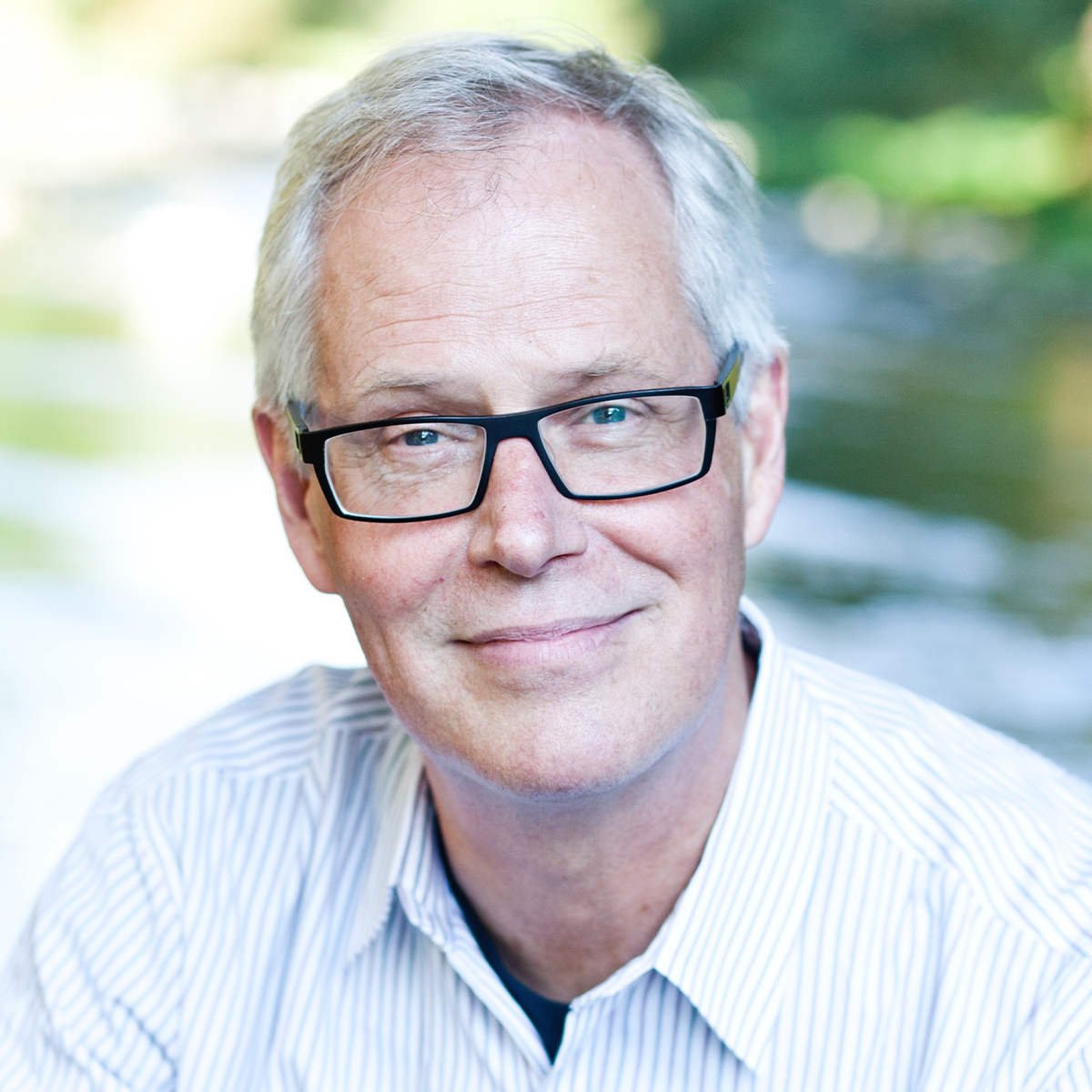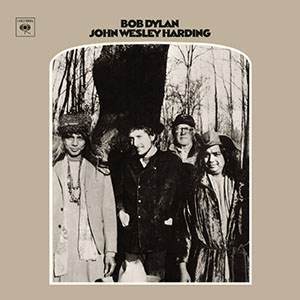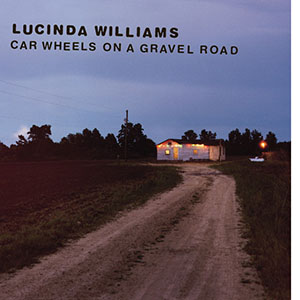Brené Brown: Hi everyone I am Brené Brown. And this is Unlocking Us.
[music]
BB: Welcome back. Part 2 of my conversation with Chris Germer. If you haven’t listened to Part 1, stop the episode, go listen to that and then come back here. Because Part 1 is really important, you have got to do these in order, it’s like a good mystery novel. In the second part, I’m going to ask some tough questions. Can anger exist with fierce compassion? Can inner and outer transformation happen at the same time? And then of course, like my softball question, what is wisdom exactly? And of course, he has an answer, which is so great. I’m glad you’re here with us.
[music]
BB: Alright, before we get started, let me tell you a little bit about Dr. Christopher Germer, clinical psychologist and co-developer with Kristin Neff of the Mindful Self-Compassion Program, that’s been taught to over 200,000 people. He’s also the author of a very popular book that I love, The Mindful Path to Self-Compassion, and co-author also with Kristin Neff, of the professional textbook, Teaching the Mindful Self-Compassion Program and The Mindful Self-Compassion Workbook. He is a lecturer on psychiatry part-time at Harvard Medical School, he’s been integrating the principles and practices of meditation into psychotherapy since 1978.
BB: He co-edited two influential volumes, Mindfulness and Psychotherapy, and Wisdom and Compassion in Psychotherapy. And he is a founding faculty member of both the Institute for Meditation and Psychotherapy and the Center for Mindfulness and Compassion, at the Cambridge Health Alliance Harvard Medical School. Right now, he divides his time between teaching, writing, clinical practice, and consulting on self-compassion research and supporting the Center for Mindful Self-Compassion. He maintains a small private practice in Cambridge, specializing in mindfulness and compassion-based psychotherapy. He is also a committed student of insight meditation and co-director of the Annual Meditation and Psychotherapy Conference at Harvard Medical School Cambridge Health Alliance. Let’s jump in.
[music]
BB: Alright, welcome back, Chris.
Chris Germer: Thank you for having me back.
BB: Man, you open doors for me, you put me on an elevator that had to rise up past the… Near enemy floor, which is not always easy, and we’re back to this conversation about fierce compassion, which I think so many of us are trying to figure out right now. When there’s so much pain and hurt in the world and we want to be a voice, we want to speak up and speak out, we want to take action, and we want to do so from a place where we are healing pain, not causing more pain. But I’m not sure that’s our default as humans. Do you think that’s our default as humans? Do you think it’s just human nature, social species stuff, to struggle with how to respond to pain and hurt without causing more pain and hurt, without self-protecting and distancing? Do you think some of that’s just about being human?
CG: Yes, I do think that it’s very human, and I also think that we are better than that. [laughing]
BB: Oh! Both things are true. There is some human instinct there, but we’re also better than that. Yeah. Well… Of course that was your answer. That was good! So, we talked about fierce compassion on the last episode, and we talked about Kristin Neff’s work, and we’re both big fans of Kristin Neff, and we talked about kind of when you talk about fierce compassion, the far enemies are… And let’s set it up. You’ve witnessed an injustice, you’re outraged about something that seems immoral and hurtful, and the far enemies of fierce compassion are emotional reactivity, demonizing or dehumanizing, and hostility.
CG: Yeah, that comes very easily. It’s very instinctive, because when we feel threatened, we feel fight, flight, freeze, the threat response gets triggered and very easily we slip into reactivity, demonizing, and hostility. That’s true.
BB: One thing that was really hard for me to think about personally, is I can definitely slip into these things around social justice issues, equity issues, but I could slip into these things when someone does something to my kid that pisses me off. And then what I’m modeling for my child, when I’m like, “What? What do you mean that she said that to you? And she has no idea what she… I don’t even know how she became a teacher!” And all of a sudden emotional reactivity, demonizing, hostility. Right?
CG: Yeah, yeah. But you know, your kid may also forgive you your excesses because your child knows where it’s coming from.
BB: Yes, it’s kind of like… I have a very clear sport mode, but I do not have a very clear Buddhist mode in those moments, like I just go into sport mode and so…
CG: I don’t think… I think Buddhists go into sport mode too.
BB: You do?
CG: Oh! I’ve met enough to say yeah, they go into sport mode as well.
BB: Oh! I love that even more! Yes. Okay, that is so helpful. So then the near enemy of fierce compassion, which is we talked about in the first episode, where love and suffering come together is instead of emotional reactivity we’re just complacent, like, “Hmm.” And then instead of demonizing and dehumanizing, we go to sameness. And then we instead of kindness, we go to pity. So, what we’re looking for in fierce compassion, I want to make sure I’ve got this right, is kindness, both self-kindness and to others, a sense of common humanity, and a sense of mindfulness.
CG: So, another way of thinking about that in the social justice area is to be wise or to have kind of a balanced awareness about what’s going on and ready to act not complacent. Also in the social justice area, common humanity, in the realization that we are all different, yet what each of us do has an impact on everyone’s life, including our own. And lastly, in terms of kindness, to recognize that anything that we do for another person, if it’s not done with an awareness of really the sacredness or the value, the preciousness of whomever it is that we’re trying to help is only going to hurt them. So really what… The thread that really holds all this together, in my view, is the common humanity thread.
BB: It’s interesting, so we talk a lot about those… Everyone that we take through our Dare to Lead program or The Daring Way program, goes to selfcompassion.org, Kristin’s website, and takes the evaluation on self-compassion. People really struggle the most with self-kindness and common humanity. And as a shame researcher, it makes sense to me because shame is the most effective when it convinces you that you’re alone. And so, I love what you said about taking wise and compassionate action. This is what you write in this article that again, if you missed the first part, I told Chris, I had to walk away from it like three times, because I thought, in my dualistic thinking sometimes that I have… I don’t know, there was something in me when I was reading this article that I was in a season of my activism where I had to stop because I couldn’t tolerate my own level of assholeness.
CG: Well, I love your honesty.
BB: It’s true.
CG: I think whenever anybody with white skin who is in the social justice space can say what you said, we are 10 steps ahead of the game. Thank you for that.
BB: Yeah, I just couldn’t take it anymore. I couldn’t take my moral outrage and then being exhausted by it, and then switching over to complacency, and then thinking about, “Wow, the privilege of being complacent because I’m taught… ” It’s like I couldn’t figure out how to find a way to fight for what I believe in, in a way that’s sustaining and also matches my personal commitment, which is about love and excavating lovelessness in myself and the world. And so the moment I started using lovelessness as the fuel for my activism, something felt broken. It just felt broken. Does that make sense?
CG: Well, I just so appreciate what you’re saying, which is, we need to work on ourselves and the system, unjust systems that we live in at the same time, because if we don’t get our individual act together, we can create the most glorious systems, and they’re not sustainable. In other words, our hearts and minds need to be in a place that can sustain these good systems, even if we are able to create them. And frankly, I think along the way to a more perfect world or a better world anyway, the best way we can make progress in that regard is to continue to work on ourselves. So, you’re really making a really nice case for inner and outer transformation necessary to happen at the same time. In other words, I think we really do need a balance to work on ourselves and do social justice work at the same time, I think it has to happen simultaneously or it’s going to get lopsided and it’s going to feel loveless, as you said, and frankly, we’re going to burn out, this is the bottom line. A lot of people ask us, “So what’s the best antidote to burnout or compassion fatigue?” It’s self-compassion.
CG: We need to be able to take care of ourselves, we need to nurture ourselves, and frankly, we need to grow as individuals, if we want to grow the world around us. Anyway, I just really appreciate that you have that integrated vision, Brené.
BB: Yeah, integration and discernment are my things that I’m working on right now. And I love integration, because I love that the Latin word for integration is integrare, and it means to make whole.
CG: Oh! That’s sweet.
BB: Isn’t that nice?
CG: That is very nice.
BB: Okay, I do need some help from you, I need you to validate something for me. Am I allowed to engage and come from a place of fierce compassion and get really pissed off sometimes?
CG: Oh! It’s a very interesting question. Yeah, yeah, yeah. So, you should really be interviewing Kristin on this, Kristin Neff, because she’s spent a lot more time thinking about this, but one thing that we both agree on, very much so, is that anger, like any emotions… You say this all the time yourself, it’s information, it doesn’t mean because we’re angry that it’s more correct or incorrect. It’s just information, and so the issue is not what emotion we have, but how we’re holding that emotion and what we can learn from the emotion… Right? Alright, so anger naturally arises when there’s unfairness, when there’s injustice, when we feel threatened, anger is such an interesting emotion. David White, I think he describes anger as a… Have you heard that? As a compassionate emotion, he said, because when we’re angry, we’re actually protecting something that is so deep and so near to us that we just don’t have a better way of holding it or protecting it, other than being just angry.
BB: That is beautiful.
CG: The amazing thing about anger is that it points to something really deep, like our core values, that is also endangered and also a place of, as you would probably have already said a million times, is a place of vulnerability. So anger, anger is a function, which is actually protecting something sacred, if we have the courage to go into that place, into that place of deepest meaning and also into that place of brokenness. When we’re in the social justice field, we have to enter into a place of brokenness, we’re broken, these cultural systems are breaking. So, what is anger? Anger is protective. It’s protective, but if we don’t have the capacity to see deeply, if we can’t get to those broken places, if we can’t get to those core values to what is sacred to us and hold them and protect them, then what’s going to happen is we’re not going to behave wisely, we’re just going to react on the surface with our anger and cause more pain and suffering.
CG: So, I think anger is energy and anger is information. The energy side of anger is also brilliant, brilliant, it mobilizes us potentially for goodness. However, we need to apply it wisely, wisely. So how do we temper anger with wisdom? That’s a really important question. How do we do that? And I know Mahatma Gandhi was often asked about this, and what he says basically is he definitely knows anger, he can feel anger, and he even… He used the energy of anger in order to basically liberate a subcontinent from colonial domination. But by the time it came out, it didn’t come out in violence, it came out in non-violence, it came out in a transformative wise action. And ultimately, I think this is our challenge, which is to when we get angry, to be able to validate it, to be able to feel it, to know what it is that we’re protecting, and then to find wise and effective ways of protecting those sacred things that need protecting without causing further harm.
BB: That’s really beautiful and true. And you don’t see any successful social justice movements without anger, and you don’t see any successful social justice movements without wisdom. And so anger seems to be like a great, powerful, like you said, brilliant catalyst, but in our work, we always say, “But it’s a sucky life companion.”
CG: That’s great. Yeah, it’s a catalyst, but it’s a lousy companion. That’s great.
[music]
BB: What is wisdom?
CG: Well, there’s like an Eastern version, there is a Western version. In the East, wisdom refers to insight into complexity, into the interdependence of all things, which means also into our own selflessness, that who Brené is or who Chris is, is really a combination of an infinite variety of intersecting forces. There’s not a rigid Brené or Chris anywhere to be found. She’s changing, Chris is changing. We’re all changing. So, wisdom is really this awareness of interdependence, in the East. And in the West, usually people say, “Oh, that’s a wise person,” because there’s this pragmatic aspect of being able to not only see kind of all the complexity of situation, but to find your way through. How to get stuff done in a way that is effective. You know?
BB: Yeah.
CG: So, in my view, a really nice definition of wisdom is really a combination of both, one is that we can see the complexity of things and also find our way through. And without a doubt, whenever we are going to do something, like sometimes people say, “Okay, now that I’ve got the fire of compassion burning in my heart, what do I do about my rotten… ” I don’t know of someone, how do I fix that person or that thing? And the answer is, “I can’t tell you, you have got to figure that out.” Anytime we’re going to do something, it really depends on the conditions at that moment, which includes who’s doing it and when and with whom, and so forth. So ultimately, we can’t act without wisdom. We need to know what’s going on.
BB: I feel lucky that you’re sharing your wisdom with us today, because I do feel like it is a combination of interdependence, but also helping us find a way through. I feel very grateful for that. I do.
CG: Thanks. Thanks. Yeah.
BB: Alright, speaking of wisdom, are you ready for some rapid-fire questions, which is the opposite of wisdom, probably?
CG: We’re going to have a little fun. Have a little fun together Brené.
BB: Yeah, going into fun mode. Alright. Fill in the blank for me. Vulnerability is…
CG: Is the fluttering of the human heart.
BB: Oh my god. I’m looking at Barrett. We’re both like, “So good.” Okay, you, Chris, are called to be very brave, but your fear is real, you can taste it in your mouth, you can feel it in the back of your throat, what is the very first thing you do?
CG: Oh, I felt anxious before talking in this interview because I admire you so much, we haven’t met, I was really hoping, “Oh, I hope it goes well.” And you know, I didn’t realize you were quite so delightful. I mean, I’ve read your books and they’re fabulous, but in person, you’re even better. So what did I do prior to this? I just… I dropped into my heart. And oh, I just felt the love that was there and thought, “Let’s make some room for this,” and that’s what happened.
BB: When you say you drop into your heart, are you dropping in from your head?
CG: Yeah. Drop down into the heart, the spiritual heart, in the heart region of the body where our deepest intentions and wishes and knowing takes place.
BB: Beautiful. Okay, what is the last television show that you binged and loved.
CG: Ted Lasso.
BB: So good. Right?
CG: It is so good, yeah.
BB: So good.
CG: I’m just looking forward to the next series, the next…
BB: Me too. They’re holding out on us.
CG: It’s a compassion show. It’s all compassion, right?
BB: It is very much a compassion show. Tell us your favorite movie.
CG: Oh! My favorite movie. Oh my goodness. Oh, there’s just so many films that come through my mind, that either are like fun ones and…
BB: One you watch whenever it’s on?
CG: Oh, I don’t tend to watch movies more than once.
BB: Oh, really?
CG: Yeah, I don’t know, we were thinking about Gandhi just a few moments ago, and I sure did love that film, if I need to say some film, but oh there are just so many…
BB: We’ll just leave it open. We’ll just say too many to name.
CG: Okay.
BB: What about a concert that you’ll never forget?
CG: A concert I’ll never forget. Well, in 1970, I went to a Grateful Dead concert. And that was a hoot. I will probably never forget it. That’s one.
BB: That’s perfect. What’s your favorite meal?
CG: Well, I could tell you my favorite ingredients are grits, even though I was born and raised in the Northeast.
BB: You’re a southern boy.
CG: Well, my wife’s from Louisiana, but I eat more grits than she does. I love grits, I love avocados, and I like anything that’s fresh.
BB: Yeah. Grits. I would have never guessed grits. I love grits. Do you put salt and butter on them?
CG: Well, there are many ways of making grits, sometimes I put salt and butter, sometimes I put in spinach, sometimes I will add nuts and maple syrup and raisins. It’s a miracle food.
BB: It is a miracle food, take that everybody who doesn’t eat grits. Yeah, you heard it right here. Okay, a snapshot of an ordinary moment in your life that brings you joy.
CG: I love to sit on the back porch and look at my wife’s beautiful garden, which is a cascade of color. That’s an ordinary moment, which I enjoy, and frankly, I love to meditate. You know, it’s such a joy to wake up in the morning and sit down and just go home, go home in the heart. And those are more individual things I have to say, my sweetest moment of the day is at the end of the day, this is a rather personal thing, but at the end of the day, when my wife puts her head on my shoulder, I think I could die right then, and I’ll be perfectly at peace.
BB: Wow, that is a moment to be grateful for. Yeah, it gave me shivers. Okay, we asked for five songs that you can’t live without… I’m going to read them to you, “Hallelujah,” by Leonard Cohen, “All Along the Watchtower,” the original version by Bob Dylan, and then the later version by Jimi Hendrix. You may have to help me with this one. Radhe Govinda… How do you say it?
CG: You said it.
BB: Really?
CG: Yeah.
BB: “Krishna Das.” Did I say it?
CG: You said it.
BB: Okay. “Lake Charles” by Lucinda Williams. You like grits and Lucinda Williams?
CG: And Lucinda Williams, it’s true.
BB: Oh my God, you are such a southern guy.
CG: Such a southern guy.
BB: And then “White Rabbit,” by, I only knew there was a Grace Slick version. Oh but… And the Bluegrass version by Molly Tuttle. Come on.
CG: It’s fabulous.
BB: Come on.
CG: I need to move to the South, is that what you’re saying?
BB: I’m just saying that we’ve got a lot of grits, we’ve got a lot of bluegrass.
CG: There is all that happening.
BB: And we’ve got a lot of Lucinda Williams. Okay, in one sentence, what does this mix tape say about you, Chris?
CG: Yeah, what I like, what deeply moves me is compassion in the trenches, gritty spirituality. Leonard Cohen, it’s about being beautiful and broken. Lucinda Williams is such a soulful singer, and you get the feeling of vulnerability and brokenness at every moment, and yet kind of a… The whole thing is wrapped in compassion; and her dad even wrote a beautiful poem called “Compassion.” So all these pieces, definitely the Indian kirtan, those devotional songs to God, there is this quality of compassion and devotion and love, but not in a transcendent way, in an anchored way, in a real way, in a gritty way, on the ground way, which is frankly where it just has power, and I just feel deeply moved by it. Same with the blues, I love the blues.
BB: Oh God, me too.
CG: I just couldn’t think of a good blues song, but it’s the same kind of thing, it’s like our feet are in the mud, but that’s not ultimately where we live. As human beings, we are bigger than any of our suffering. And I like to be reminded that in music.
BB: Beautiful. God, this is so beautiful. I’ve enjoyed every minute. Thank you so much for being on Unlocking Us.
CG: Thank you Brené. It’s such a delight spending time with you.
BB: I feel the same way.
[music]
BB: I really hope y’all enjoyed both Part 1 and Part 2 of this conversation with Chris Germer, I just think he’s so calming. And I love to know that the Buddhists have sport mode as well. I don’t know. It was super helpful for me, very timely. You can learn all about his work, all about him, and find his books and find out more about the Mindfulness Self-Compassion Program on brenebrown.com, just go to podcasts Unlocking Us, and then you’ll see the one with him. Y’all stay awkward, brave, and kind.
[music]
BB: Unlocking Us is a Spotify original from Parcast. It’s hosted by me, Brené Brown. It’s produced by Max Cutler, Kristen Acevedo, Carleigh Madden, and Tristan McNeil. And by Weird Lucy Productions. Sound design by Tristan McNeil and Andy Waits, and music is by the amazing Carrie Rodriguez and the amazing Gina Chavez.
[music]
© 2022 Brené Brown Education and Research Group, LLC. All rights reserved.









